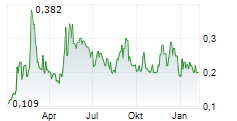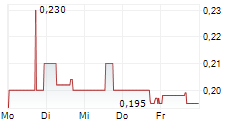
VANCOUVER, Washington, Dec. 17, 2024 (GLOBE NEWSWIRE) --
Dear Shareholders,
As I look back on 2024, during which CytoDyn Inc. ("CytoDyn" or the "Company") achieved multiple crucial milestones, and look forward to 2025 and the exciting developments that lie ahead, I remain truly grateful for your continued support. As described in detail below, we made important progress over the last year and I firmly believe the Company is poised for even more success in the year to come.
I am pleased to confirm that the Company has sufficient cash and drug supplies on hand to complete its clinical priorities in 2025. We also continue to make progress on the development of a long-acting formulation of leronlimab that should provide greater patient convenience and help secure additional patent protection for the Company.
Since my last update, we have also welcomed several new consultants to the Company, including three key members of our development team. In October, Dr. Melissa Palmer joined as Lead Consultant in Hepatology, leveraging her expertise to help guide the development of leronlimab in the treatment of MASH and liver fibrosis. We also welcomed Dr. Max Lataillade as Senior Vice President and Head of Clinical Development, capitalizing on his significant pharmaceutical experience and connections to help oversee the Company's global research and development strategy, as well as to support our programs in inflammation and HIV. In November, Dr. Richard Pestell joined as Lead Consultant in Oncology to support our programs in colorectal cancer (CRC), triple-negative breast cancer (TNBC) and glioblastoma (GBM). The addition of this team of seasoned experts and top-tier consultants should enable CytoDyn to capitalize on our positive momentum, push our clinical development pipeline forward and make 2025 a pivotal year for the Company.
I believe our current strategy will result in significant value return to the Company and its shareholders and should give us the opportunity to do so on an abbreviated timeline. We are on good terms with the FDA, we have the funds required to pursue our key development objectives and we have the requisite expertise and associations to execute on our vision. Entering 2025, the Company is in control of its own destiny.
Shareholders are the lifeblood of the Company, and we remain committed to acting in your best interests. We will continue to take one thoughtful step at a time to hit our milestones and, in turn, drive value for our shareholders. It is my pleasure to provide a detailed update on some exciting new developments with this letter.
My dedication to CytoDyn continues to be grounded in my core belief that leronlimab has the potential to be a life-changing therapeutic. I remain fully committed to the mission of bringing value to our shareholders and to completing studies that will unequivocally demonstrate the impact of leronlimab in the clinic. Thank you again for your patience, support and trust. Best wishes to all for this holiday season. As we enter 2025, I am truly excited about the possibilities that lie just ahead.
With Gratitude,
Jacob Lalezari, MD
CEO
Oncology - December 2024 Update
The Company will be prioritizing oncology in 2025, as we believe this indication holds the potential for the highest value return to the Company in the form of a significant partnership and/or drug approval. As recently announced, CytoDyn has received FDA clearance to initiate a Phase II study of leronlimab in patients with relapsed/refractory micro-satellite stable colorectal cancer (CRC). As noted in our prior release, we recently completed the kickoff meeting with Syneos Health, the CRO for the study, and enrollment efforts are set to begin in January.
I am also delighted to announce that Dr. Ben Weinberg from Georgetown University and the MedStar Health Alliance has agreed to be the lead Principal Investigator for the CRC study. As requested by the FDA, the first five patients enrolled in this study will receive 350 mg of leronlimab SQ once/week in combination with TAS-102 and Bevacizumab. After a preliminary safety review, subsequent patients will then be randomized to 350 or 700 mg of weekly leronlimab with the same background regimen. The Data and Safety Monitoring Board (DSMB) will perform a second safety review after the first 20 patients have completed at least 1 cycle of therapy. The DSMB can then recommend restricting further enrollment to a single dose level, should they identify a signal of superior activity in either one of the treatment arms.
For additional information, the CRC study protocol is posted on the NCI Clinical Trials website, and can be viewed here: (https://clinicaltrials.gov/study/NCT06699836?cond=colorectal%20cancer&intr=leronlimab&rank=1).
CytoDyn also remains focused on the possible role for leronlimab in TNBC. As previously announced, we are launching two preclinical studies in TNBC that will seek to further clarify the mechanism of action of leronlimab in oncology and identify potential treatment synergies to optimize the design of a follow-up clinical study.
Lastly, the Company remains focused on the possible use of leronlimab in the treatment of GBM. Preliminary results from a preclinical study performed at the Albert Einstein College of Medicine do not appear to show a difference in outcome with leronlimab compared to the control arm. The Company has committed to repeating the study based on unpublished observations by Dr. Pestell's lab and will now employ a treatment sequence involving temozolomide and leronlimab. This follow-up study will start immediately and should help clarify the potential therapeutic benefit of leronlimab in the treatment of GBM. CytoDyn is also currently in discussions with a key opinion leader in neuro-oncology about the possibility of initiating a pilot study in patients with GBM based on Dr. Pestell's unpublished work and the outcome of the follow-up preclinical study.
Inflammation - December 2024 Update
We continue to believe that treatment of inflammation with leronlimab remains a viable and important development pathway, and we are moving forward in three indications associated with chronic inflammation on a cost-efficient basis.
First, CytoDyn previously announced exciting results from an initial preclinical study with SMC Laboratories evaluating leronlimab in the treatment of a mouse model of MASH. The results from this preliminary study demonstrated that high dose leronlimab was significantly better at reversing liver fibrosis compared to an IgG 4 isotype control and demonstrated a trend toward better fibrosis reversal compared to Resmetirom. The final results from that study have now also demonstrated that leronlimab (both high and low dose) was significantly better than Resmetirom at reversal of fat deposition (steatosis) in the liver. These exciting findings have been submitted as a late breaker abstract to the MASH TAG conference and, if accepted, will be presented at the meeting in January. In September, CytoDyn launched two follow up studies to confirm and expand on these preliminary results. The first follow-up study seeks to confirm the observations of the original study with larger cohorts of mice (12 versus the original 8/group) and will compare leronlimab with a GLP-1 agonist (Semaglutide) in addition to confirming the comparisons with Resmetirom. The second follow-up study involves the administration of CCL4, a drug that directly causes liver fibrosis in mice. This study will clarify if the observed reversal of liver fibrosis is restricted to the MASH/fat deposition pathway or might occur independently of the etiology of fibrosis (e.g. alcohol, viral hepatitis, etc.). The results from both follow-up studies will become available in January. As a side note, we have been contacted by colleagues at a major academic institution who indicated that, if the liver fibrosis reversal results are confirmed in the follow-up studies, they would be interested in funding a pilot study of leronlimab in the treatment of patients with pulmonary fibrosis at their own center.
Second, in September, CytoDyn applied to the NIH/RECOVER-TLC group for the potential inclusion of leronlimab in their next round of Long Covid treatment studies. We expect to learn the group's decision in the next several months. In the meantime, we have paused the launch of our previously announced pilot study in patients with myalgic encephalitis/chronic fatigue syndrome (ME/CFS) since the two conditions (Long Covid and ME/CFS) essentially overlap. If the RECOVER-TLC team decides to move forward with leronlimab, we will formally suspend the ME/CFS study. If the RECOVER-TLC team declines to include leronlimab, we will resume the pursuit of a pilot study in patients with ME/CFS, for which we already have a draft protocol synopsis and lead investigator identified.
Third, we have finalized the protocol for a pilot study of leronlimab in the treatment of patients with mild to moderate Alzheimer's disease. That study will take place at Cornell Medical Center in New York and will evaluate an objective neuroradiology primary endpoint that will provide a clear measure of leronlimab's potential role in treating Alzheimer's disease. I am pleased to announce the study is now fully funded by an outside foundation, and the protocol will soon be submitted to both the FDA and the Cornell IRB.
Other - December 2024 Update
As previously announced, CytoDyn is partnering with the American Foundation for AIDS Research (amfAR) to sponsor an HIV cure study called LATCH (Leronlimab in Allogenic stem cell Transplant to Cure HIV). The study will employ leronlimab to protect CCR5+ donor immune cells from HIV infection, while aiming for a cure in the setting of bone marrow transplant to an HIV+ recipient. We are confident in the likelihood of success of the LATCH program, given the announcement over the summer by investigators in Germany of a successful cure using donor cells from an individual who was heterozygous for the CCR5-delta 32 mutation. Indeed, those same investigators have asked CytoDyn if they too can run the LATCH study at their research center in Berlin. The LATCH protocol is scheduled to complete final updates at the end of December, and we look forward to the launch of this program in 2025.
CytoDyn has also continued to prioritize the publication of our existing clinical data. The CD10 manuscript describing the trial of patients with mild to moderate COVID-19 was recently published in Clinical Therapeutics. The manuscript for the CD02 Phase 3 study in patients with multi-drug-resistant HIV has also just been accepted for publication by the Journal of Acquired Immune Deficiency Syndromes (JAIDS).
The Company is pursuing publication of four additional manuscripts, including the CD12 manuscript (severe and critical COVID-19), twin papers on the TNBC study results, and the MASH manuscript. Those submissions were delayed by various obstacles but are now moving forward. In addition, CytoDyn is preparing a draft manuscript summarizing the integrated safety data from the almost 1,600 patients who have now been treated with leronlimab. The final draft of that manuscript will go out for author review in the coming weeks and will be submitted for peer review shortly thereafter.
Note Regarding Forward-Looking Statements
This letter contains forward-looking statements relating to, among other things, clinical drug development and research strategy. The reader is cautioned not to rely on these statements, which are based on current expectations of future events. For important information about these statements and our Company, including the risks, uncertainties and other factors that could cause actual results to vary materially from the assumptions, expectations and projections expressed in any forward-looking statements, the reader should review our Annual Report on Form 10-K for the fiscal year ended May 31, 2024, including the section captioned "Forward-Looking Statements," and in Part I, Item 1A, as well as subsequent reports filed with the Securities and Exchange Commission. CytoDyn Inc. does not undertake to update any forward-looking statements as a result of new information or future events or developments other than as required by law.
Media Contacts
CytoDyn
Riyaz Lalani
Gagnier Communications
CytoDyn@gagnierfc.com



